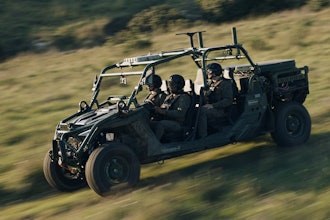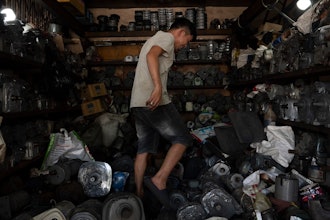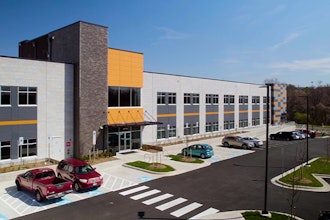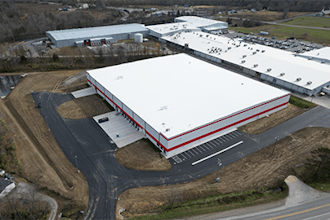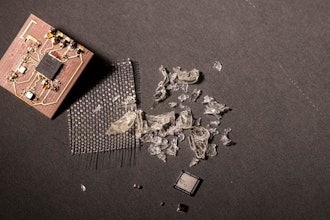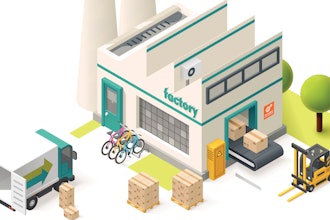 Manufacturing & Education: Understanding the Connection. That is the name of an educators’ workshop I just attended that brought teachers and manufacturers together to share perspectives and opportunities. Panelists talked about workforce needs and what they find in job applicants.
Manufacturing & Education: Understanding the Connection. That is the name of an educators’ workshop I just attended that brought teachers and manufacturers together to share perspectives and opportunities. Panelists talked about workforce needs and what they find in job applicants.
Teachers toured facilities ranging from highly automated to the highly manual labor type. There were makers of complicated industrial components, industrial automation systems, and consumer food products.
The city’s workforce development agency was there to tell of labor statistics, their activities, and experiences placing people.
The business representatives generously offered their facilities and time for tours by students. They told of ill-prepared people applying for jobs and how scarce good people were that could learn the position, communicate clearly in written and spoken word, and work well with colleagues.
I was once in their position as an engineer. Now, in my tenth year as a teacher, I can counsel them that and explain that field trips are great experiences for students, but a lot of work for teachers to set up, and they only happen once or twice a year, at most. They are a high point but the effect wears off and as time passes, the lure of what was seen pales. Ultimately, the effect the business hoped for is lost in the hustle and bustle of a busy school life. It takes a long time of repeated impressions to change most people.
To do this, I think a win-win solution would be a business investment of time to develop lesson kits based on knowledge, skills, materials, and processes they use in their enterprise, and to offer these to students as young as middle school. Why? Let me take it in reverse order.
Middle school, because it takes a long time to influence the interests and direction of young minds. In years long ago, more parents were craftsmen and children would watch and imitate. The mental stimulation that comes from that kind of learning goes a long way to develop creative, reasoning minds, the kind businesses would like in their hires.
Well, it’s been decades since the majority of parents have regularly wielded a T-square and hand tool. So, the schools must take over this role. (Schools didn’t help avoid the current state of affairs. In fact, the principal on my campus loathes “shop” and shut down the last remaining one this past year.)
Given students at the middle school level, we have a fighting chance of being there consistently for them to pass them the joy of design, creation, and manufacturing.
So, what’s with the kits? Developing project lessons is fun, but it takes a lot more time than a teacher has, and even more to make it relevant and appropriately challenging, while also safe. Many times, too, it is an administrative nightmare to get materials and/or equipment to carry out the lessons. If businesses were to offer unit lessons in the form of outlines with the essential knowledge and skills highlighted, they would get students thinking and doing what they think they should be learning. Ideally, these lessons would be augmented with materials and, if necessary, equipment to make it happen. Employees would be welcomed to visit to present topics and do demonstrations. Materials might be as simple as the cut-off short ends that are tossed in the recycling bin anyway. Students would experience the lesson’s essence over a sufficiently long time, and they would remember it.
What are your thoughts? Do schools need something like this?
Randy Ohman is a former product design engineer that is now doing the real work of his career, that of educating our upcoming contributors to society. His classes are middle school introductions to engineering, robotics, and applied technology.








